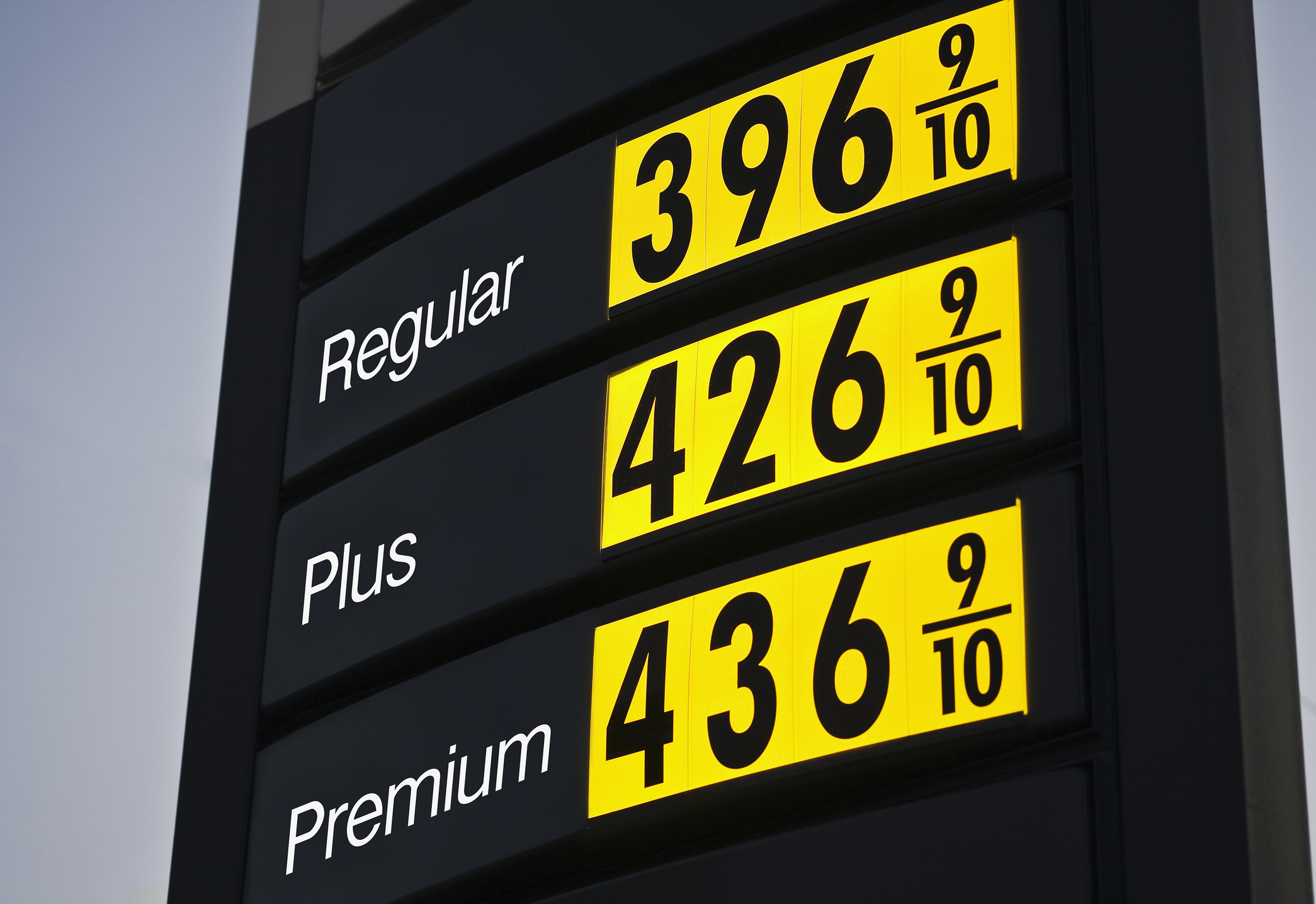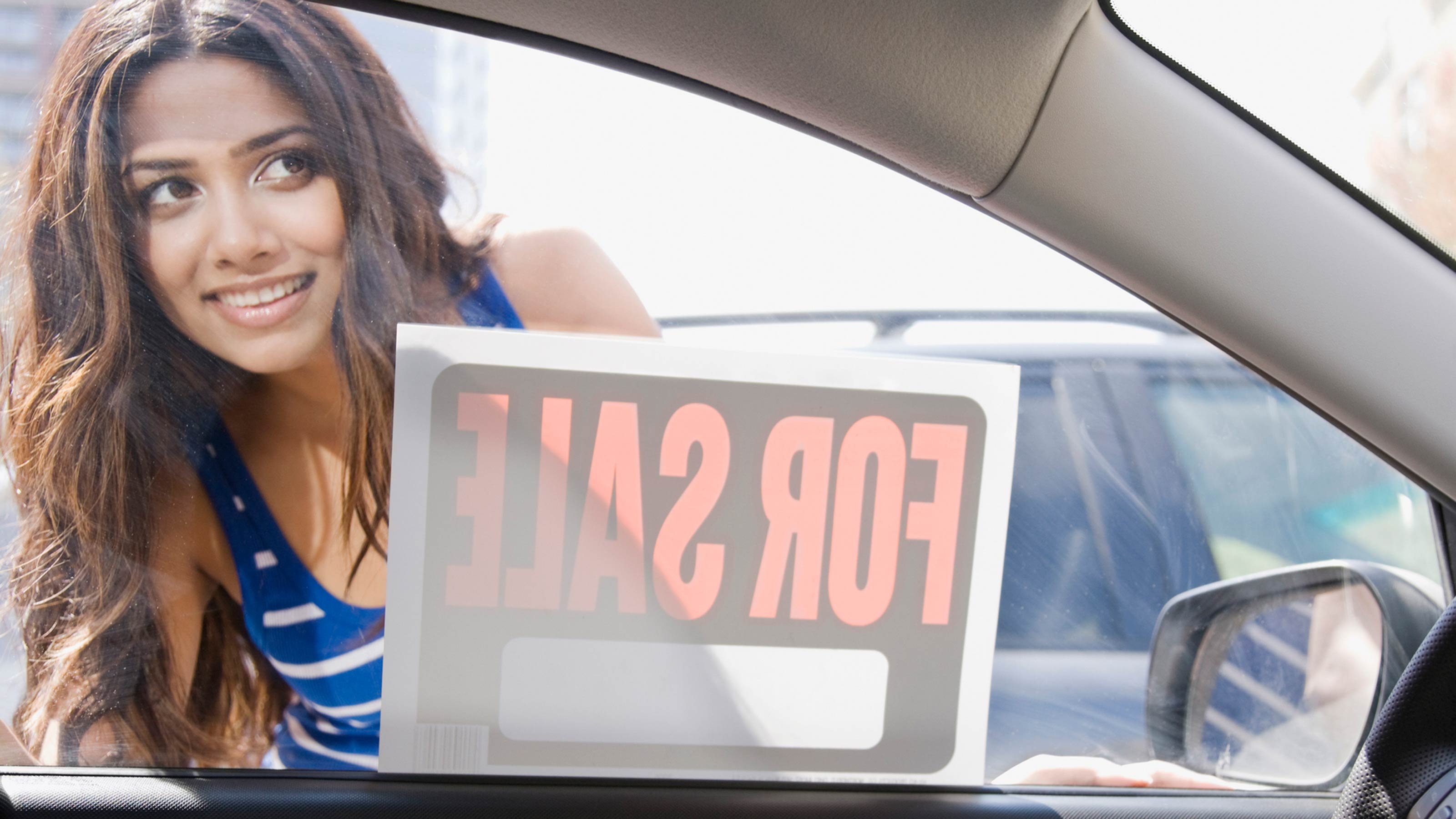Cash Out Your Lease on Your Car
You could walk away with a check if your vehicle is worth more than the purchase price written into the lease.


Profit and prosper with the best of Kiplinger's advice on investing, taxes, retirement, personal finance and much more. Delivered daily. Enter your email in the box and click Sign Me Up.
You are now subscribed
Your newsletter sign-up was successful
Want to add more newsletters?

Delivered daily
Kiplinger Today
Profit and prosper with the best of Kiplinger's advice on investing, taxes, retirement, personal finance and much more delivered daily. Smart money moves start here.

Sent five days a week
Kiplinger A Step Ahead
Get practical help to make better financial decisions in your everyday life, from spending to savings on top deals.

Delivered daily
Kiplinger Closing Bell
Get today's biggest financial and investing headlines delivered to your inbox every day the U.S. stock market is open.

Sent twice a week
Kiplinger Adviser Intel
Financial pros across the country share best practices and fresh tactics to preserve and grow your wealth.

Delivered weekly
Kiplinger Tax Tips
Trim your federal and state tax bills with practical tax-planning and tax-cutting strategies.

Sent twice a week
Kiplinger Retirement Tips
Your twice-a-week guide to planning and enjoying a financially secure and richly rewarding retirement

Sent bimonthly.
Kiplinger Adviser Angle
Insights for advisers, wealth managers and other financial professionals.

Sent twice a week
Kiplinger Investing Weekly
Your twice-a-week roundup of promising stocks, funds, companies and industries you should consider, ones you should avoid, and why.

Sent weekly for six weeks
Kiplinger Invest for Retirement
Your step-by-step six-part series on how to invest for retirement, from devising a successful strategy to exactly which investments to choose.
A contract is a contract, right? You sign on the dotted line and agree to certain terms. With a lease, you agree to pay x amount for, say, 36 months, and at the end of the lease term you can either buy the vehicle or turn it in.
Take Our Quiz: Should You Buy or Lease Your Next Car?
But there’s a third option listed in your contract, although it’s unlikely any dealer will mention it: You can sell your leased car yourself before the end of the lease.
A colleague at Kiplinger’s, Manny Schiffres, recently did this. He had five months left on his leased Lexus ES 350 when he decided he didn’t need the car anymore and wanted out of the contract. Rather than putting up with the hassle of selling the car to a private party, he sold it to CarMax, which handled the paperwork and paid off the leasing company. He saved about $3,000 on the remaining payments and insurance.
From just $107.88 $24.99 for Kiplinger Personal Finance
Become a smarter, better informed investor. Subscribe from just $107.88 $24.99, plus get up to 4 Special Issues

Sign up for Kiplinger’s Free Newsletters
Profit and prosper with the best of expert advice on investing, taxes, retirement, personal finance and more - straight to your e-mail.
Profit and prosper with the best of expert advice - straight to your e-mail.
You could walk away from your lease with a check in your hand if your vehicle is worth more than the purchase price written into the lease. Used-car values have shot up in the past few years. Plus, the residual value—what the car is assumed to be worth at the end of the lease term—is rarely spot-on.
Take the money and run. Some dealers are beating customers to the punch, contacting lessees to offer a sweet deal on a new leased vehicle. In leasing lingo, this is called a pull-ahead program. The offer may include waiving your last few payments and end-of-lease fees. The new monthly payments might even be lower than what you are paying now. It sounds great, but don’t take the bait—at least not yet. The fact that they are reaching out to lessees means they want your car and they are confident they can turn around and sell it for a profit, says Tarry Shebesta, president of LeaseCompare.com.
You may be able to pull the profit out of the car yourself, but you’ll need to know what your vehicle is worth. Look at a site that lists used-car values, such as Kelley Blue Book, NADA Guides or Edmunds.com, for the dealer retail price. Then call your leasing company and find out what your current payoff amount is, including the remaining payments, the cost to buy the car and the termination fee (a few hundred dollars).
When your payoff is less than what the car is worth, it makes sense to sell it. A dealer or CarMax can appraise the car, contact the leasing company for the payoff quote and write you a check for the difference. If you’d rather try your hand at boosting your profit by selling the car to an individual, LeaseCompare.com will handle the paperwork for $495 so the title transfers directly to the new owner and sales tax is paid only once. Otherwise, you’d pay tax to purchase the car from the leasing company, and the person who buys your car would pay tax to register the car (dealer-to-dealer transfers don’t incur sales tax).
If you wait until the end of the lease and turn the car in, be prepared to pay some fees. You’ll pay a disposition fee of $200 to $500 to cover the cost for the leasing company to clean up the car, prepare it for sale and handle the paperwork. If you’ve gone over the mileage allotment, you’ll pay about 20 cents per extra mile.
If the car has a few scratches, you probably won’t be charged for excess wear and tear. But get anything more serious fixed before you turn the car in. It will likely be cheaper to pay for the fixes yourself than to be billed for the damage later.
Don’t dismiss the option of buying the car at the end of the lease and keeping it, even if comparable vehicles are selling for less than the lease’s purchase price. You’ll pay a purchase option fee of $200 to $500, but the peace of mind of knowing the car’s history may be worth the extra cost.
Ask Jessica a question at janderson@kiplinger.com, or follow her on Facebook.
Profit and prosper with the best of Kiplinger's advice on investing, taxes, retirement, personal finance and much more. Delivered daily. Enter your email in the box and click Sign Me Up.

-
 Dow Adds 1,206 Points to Top 50,000: Stock Market Today
Dow Adds 1,206 Points to Top 50,000: Stock Market TodayThe S&P 500 and Nasdaq also had strong finishes to a volatile week, with beaten-down tech stocks outperforming.
-
 Ask the Tax Editor: Federal Income Tax Deductions
Ask the Tax Editor: Federal Income Tax DeductionsAsk the Editor In this week's Ask the Editor Q&A, Joy Taylor answers questions on federal income tax deductions
-
 States With No-Fault Car Insurance Laws (and How No-Fault Car Insurance Works)
States With No-Fault Car Insurance Laws (and How No-Fault Car Insurance Works)A breakdown of the confusing rules around no-fault car insurance in every state where it exists.
-
 10 Things You Should Know About Buying a Car Today, Even if You've Bought Before
10 Things You Should Know About Buying a Car Today, Even if You've Bought BeforeIf buying a car is on your to-do list, and it's been a while since you went shopping for a new one, this guide will help avoid any nasty shocks in the showroom.
-
 Get the Best Car Deal in Retirement: Here's the Trick
Get the Best Car Deal in Retirement: Here's the TrickPlanning on shopping for a new car this Labor Day weekend? Here’s how to haggle for a better price, even though you're retired.
-
 7 Gas-Saving Tips That Actually Work
7 Gas-Saving Tips That Actually WorkThese are gas-saving tips that will actually work for you and your car this year.
-
 Want to Lease an EV? The Tax Credit 'Loophole' for That Is Going Away Soon
Want to Lease an EV? The Tax Credit 'Loophole' for That Is Going Away SoonTax Credits If you are deciding whether to lease or buy an electric vehicle, here is what you need to know about how the EV lease tax credit works now that it will be eliminated under Trump's new tax law.
-
 Car Buying in a Topsy-Turvy Market
Car Buying in a Topsy-Turvy MarketYou need a new car? Good luck with that! What should you do? We've got some answers.
-
 Watch Out for Flood-Damaged Cars from Hurricane Ian
Watch Out for Flood-Damaged Cars from Hurricane IanBuying & Leasing a Car In the wake of Hurricane Ian, more flood-damaged cars may hit the market. Car prices may rise further because of increased demand as well.
-
 Car Buyers: The 3-Day Grace Period Is Just a Myth!
Car Buyers: The 3-Day Grace Period Is Just a Myth!Buying & Leasing a Car Many car buyers think they have three days after making a purchase to return a car. Here’s where they’re going wrong, and what they should do instead to get a decent used car.
-
 PODCAST: Car-Buying in an Inflated Market with Jenni Newman
PODCAST: Car-Buying in an Inflated Market with Jenni NewmanBuying & Leasing a Car With cars both scarce and expensive these days, what to do if you want – or need – a new ride? Car-buying strategist Jenni Newman of Cars.com shares some tips. Also, more on the magical 9% savings bond.